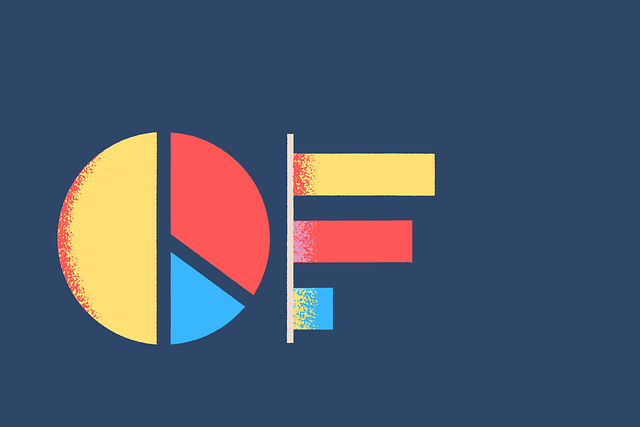Google FAQ Rich Results leverage structured data (FAQPage schema) to enhance search engine results pages with direct answers, boosting user engagement and site rankings. By correctly structuring Q&A pairs using `<dt>` and `<dd>` tags, with unique identifiers for optimization, relevant content is displayed in an accordion interface. This strategy, including keyword use and testing, improves user experience, sends positive signals to Google, and increases organic traffic through enhanced search visibility. Analytics tools measure CTRs, session durations, and bounce rates to assess success and refine optimizations for better performance in Google's FAQ Rich Results.
In today’s digital landscape, enhancing user experience and optimizing search engine rankings are paramount. One effective strategy to achieve both is integrating the FAQPage schema into your content for eligibility in Google’s rich FAQ results. This article explores the transformative power of these enhanced search snippets, offering insights on improving user engagement and expanding SERP real estate. From understanding the impact of Google FAQ Rich Results to best practices for integration, discover how this simple step can revolutionize your online visibility.
- Understanding Google FAQ Rich Results and Their Impact
- Benefits of Implementing FAQPage Schema
- Key Elements to Include in Your FAQSchema Markup
- Optimizing Your Content for Better User Engagement
- Best Practices for Effective FAQSchema Integration
- Measuring Success: Analyzing FAQ Rich Result Performance
Understanding Google FAQ Rich Results and Their Impact

Google FAQ Rich Results are a powerful feature that enhances search engine results pages (SERPs) with interactive and detailed information. When a user searches for a question or topic, Google displays a panel with direct answers, often extracted from structured data using the FAQPage schema. This rich snippet provides users with quick access to relevant and accurate information without requiring them to click through to a website.
By implementing the FAQPage schema correctly, website owners can optimize their content for these rich snippets, increasing user engagement on search result pages. It’s a strategic move that not only improves the overall user experience but also boosts the site’s visibility and potential rankings in search engine results. How to Add FAQ Schema to your website is a crucial step in enhancing your online presence and ensuring your content reaches its target audience effectively.
Benefits of Implementing FAQPage Schema

Implementing the FAQPage schema is a strategic move that enhances your website’s visibility and user experience, especially when aiming for Google’s rich FAQ results. This structured data format allows search engines like Google to understand and present frequently asked questions and their answers in an elegant accordion-like interface, directly within the search results page. It’s not just about aesthetics; it significantly improves user engagement by providing quick access to relevant information, reducing bounce rates, and increasing time spent on your site.
Furthermore, FAQPage schema optimization through Accordion Schema SEO and FAQ Snippet Optimization plays a pivotal role in capturing valuable real estate on search engine results pages (SERPs). By leveraging these techniques, you can craft compelling question-and-answer snippets that stand out among competitors, enticing users to click through to your site. This strategic approach not only boosts organic traffic but also positions your brand as an authority in your industry, fostering a better user experience and stronger search engine rankings.
Key Elements to Include in Your FAQSchema Markup

When implementing the FAQPage schema for Google’s rich results, several key elements are essential to ensure maximum effectiveness. Firstly, each question-answer pair should be structured within a `
Additionally, for optimal FAQ Snippet Optimization and Accordion Schema SEO, associate each Q&A pair with a unique identifier, such as an ID or a custom `itemid`. This allows search engines to accurately display just the relevant portion of your FAQ content in the rich result, enhancing user experience by presenting only the most pertinent information at first glance.
Optimizing Your Content for Better User Engagement

To optimize your content for better user engagement, especially when aiming for Google’s FAQ Rich Results, consider incorporating interactive and structured data elements. The FAQ Snippet Optimization involves using specific schema markup like Accordion Schema SEO, which allows search engines to understand your content’s hierarchy and structure. By doing so, you enable rich snippets to display frequently asked questions and answers directly in the search results page, enhancing user experience and driving more clicks.
This strategy not only improves user engagement by providing quick access to information but also increases your website’s visibility on search engine result pages (SERPs). With Rich FAQ Results, users can navigate through questions and answers seamlessly, leading to longer session durations and potentially lower bounce rates. Ultimately, these positive signals can contribute to better search rankings over time.
Best Practices for Effective FAQSchema Integration

When integrating the FAQPage schema into your content, several best practices can enhance its effectiveness and improve user experience, ultimately driving higher search engine rankings. Firstly, ensure that your FAQs are structured logically and organized in a clear, hierarchical manner. Each question should be concise and directly address a specific user query, with corresponding answers providing valuable, relevant information. Google’s FAQ Rich Results favor well-structured data, so adhering to this standard will make your content more appealing to search engines like Google.
For optimal FAQ Snippet Optimization, consider using the schema within contextually relevant sections of your webpage. Place it near related content or within a dedicated FAQ section to increase its visibility. Additionally, use descriptive and unique titles for each question to help search engines understand the topic better. How to Add FAQ Schema guides recommend testing and refining your implementation to ensure accuracy and compatibility with various search engines’ algorithms, ultimately maximizing the potential benefits of Rich FAQ Results.
Measuring Success: Analyzing FAQ Rich Result Performance

To measure the success of implementing Google’s FAQ Rich Results, webmasters should analyze the performance of their enhanced content. By utilizing analytics tools, such as Google Search Console and Google Analytics, site owners can gain valuable insights into user behavior and interaction with the improved search results. Tracking key metrics like click-through rates (CTRs) for featured snippets can help assess the effectiveness of FAQ Snippet Optimization. High CTRs indicate that rich results are attracting users’ attention and driving relevant traffic to the website.
Additionally, monitoring user engagement metrics post-implementation is crucial. This includes tracking session durations, bounce rates, and the number of questions answered within the rich result itself. If users are spending more time on the page, interacting with the content, and finding the answers they seek without leaving, it signifies successful FAQ Rich Result implementation. Such data allows for continuous optimization of the Schema FAQPage Type, ensuring that search engines and users alike benefit from enhanced query understanding and improved SERP real estate.
